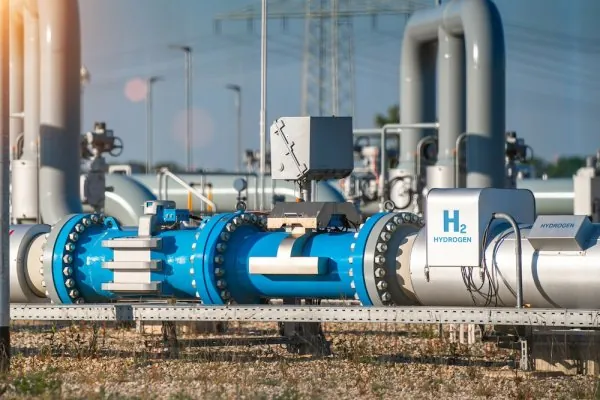
Major Study Reveals Hidden Climate Risks of Hydrogen Fuel Leaks - Are We Ignoring a Grave Danger?
2024-12-16
Author: Emily
As global initiatives to combat climate change intensify, the spotlight is increasingly shifting toward hydrogen as a promising alternative to traditional fossil fuels.
The allure of hydrogen is undeniable; when burned, it produces no greenhouse gas (GHG) emissions, positioning it as a versatile candidate for use in industrial processes, power generation, and residential heating.
However, the hydrogen revolution comes with its own set of concerns.
While the combustion of hydrogen is clean, leakage during its transport, storage, or refueling processes could lead to significant environmental implications. Researchers at MIT have unveiled startling findings indicating that leaked hydrogen may contribute to climate change by altering the behavior of other GHGs in the atmosphere, particularly methane, which has a far more potent warming effect. Their recent study, funded by the MIT Energy Initiative’s Future Energy Systems Center and published in *Frontiers in Energy Research*, presents an in-depth examination of these chemical interactions and their potential consequences.
Unpacking the Complex Chemistry Behind Hydrogen Leaks
Previous studies, including a widely referenced 2022 modeling effort, had suggested that the environmental impacts of leaked hydrogen could be significant. The MIT team took it a step further by developing a new model featuring 66 distinct chemical reactions, far more elaborate than the simpler four-reaction model used in earlier research. This enhanced approach revealed that while leaked hydrogen does indeed pose risks to the climate, its impact appears to be about one-third of that associated with leaking natural gas today.
Candice Chen, a PhD candidate involved in the research, explained that hydrogen's main effect in the atmosphere is to reduce the concentration of hydroxyl radicals (OH), known as the 'detergent of the atmosphere.' These radicals play a critical role in eliminating methane—a gas that is considered one of the most dangerous GHGs. The study illuminated a counterintuitive feedback mechanism: although leaked hydrogen decreases the availability of OH and increases methane concentrations, this rising methane can subsequently generate new OH radicals, partially offsetting the adverse effects.
Hydrogen vs. Natural Gas: A Climate Face-off
Natural gas, primarily composed of methane, has been touted as a cleaner alternative to other fossil fuels. However, when considering the climate impacts of both hydrogen and natural gas, especially when leaks occur, the comparison unveils critical insights. Hydrogen's climate impact, on a per-mass basis, is estimated to be approximately three times lower than that of methane. This finding is essential as societies consider transitioning from natural gas to hydrogen fuel: the shift has the potential not only to reduce combustion emissions but also to lessen overall climate impacts if managed properly.
The Path Ahead: Infrastructure and Policy Implications
One of the study's pressing conclusions emphasizes the necessity for comprehensive leak prevention measures as hydrogen infrastructure is developed. The researchers warn that if hydrogen can’t be utilized in a nearly leak-free manner, it may only serve as a temporary solution in the energy transition, potentially undermining global net-zero carbon emissions targets set for 2050 by entities like the European Commission and the U.S. Department of State.
The findings underscore a critical message: as the energy landscape evolves, careful consideration of all potential environmental impacts, including those of hydrogen fuel, must remain a priority. Chen advocates for the use of their detailed model in future assessments to explore the climate benefits of hydrogen compared to fossil fuels, thereby influencing policy and infrastructure decisions moving forward.
In light of this research, the transition to hydrogen fuel isn't just about clean combustion; it’s a multifaceted challenge that demands attention to the entire lifecycle of fuel—from production and storage to potential leakage. The stakes are high, and if we ignore these implications, we may jeopardize years of effort aimed at curbing climate change.









 Brasil (PT)
Brasil (PT)
 Canada (EN)
Canada (EN)
 Chile (ES)
Chile (ES)
 España (ES)
España (ES)
 France (FR)
France (FR)
 Hong Kong (EN)
Hong Kong (EN)
 Italia (IT)
Italia (IT)
 日本 (JA)
日本 (JA)
 Magyarország (HU)
Magyarország (HU)
 Norge (NO)
Norge (NO)
 Polska (PL)
Polska (PL)
 Schweiz (DE)
Schweiz (DE)
 Singapore (EN)
Singapore (EN)
 Sverige (SV)
Sverige (SV)
 Suomi (FI)
Suomi (FI)
 Türkiye (TR)
Türkiye (TR)